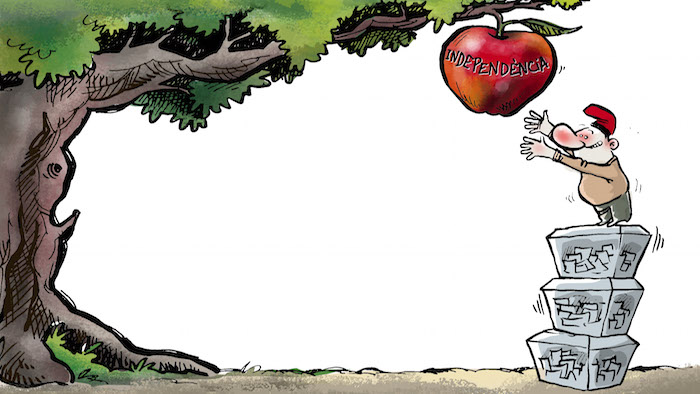According to their own stance on Catalan nationalism, newspapers either reckon that it is a clear vote in favour of independence or, on the contrary, that the majority of voters have expressed the wish to see Catalonia continue to be part of Spain.
The Madrid-based daily gives a good summary of the ambivalence of the electoral result in its editorial with the heading “Defeat and Victory”. At any rate, this result cannot pass without consequences—
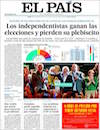
No one can afford to ignore this result. Everyone, including the government, will have to react to it. The elections being celebrated in Catalonia have an enormous significance. Despite the confusion regarding the nature of the popular consultation (plebiscite or elections), and despite the poor quality of the debate, the voter turnout was extraordinary, an historic record for a regional election.
Receive the best of European journalism straight to your inbox every Thursday
“*One of the main conclusions to draw from the results of yesterday’s elections is that Catalan society is very diverse,” claims the editorial of the Barcelona-based daily –
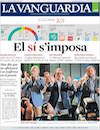
Six different parties will form the new parliament. Those in favour of independence and defenders of the status quo rub shoulders with federalist socialists and anti-system campaigners. A polyphony of voices defining a very complex society, but also open, mature and politically engaged.
“The elections in Catalonia place Artur Mas in a sort of limbo,” argues the Madrid-based right-wing newspaper, which claims that the region’s president —
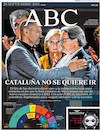
in his journey towards independence, his Ithaca, has banded together with the Republican Left of Catalonia, and the pro-independence groups. He now needs the complicity of the PUC [pro-independence radical left] to begin a process of detaching from Spain. And with a more than doubtful legitimacy, since he did not reach – even with the PUC – 50% of the vote.
The editor of the Catalan daily Enric Hernández believes that it is a “clear triumph” for the independence movement, but he observes that Mas and his party have won “an insufficient mandate” to move to independence –

With a record voter turnout, in keeping with what is at stake, the pro-independence has bloc has declared itself the true victor in the elections of 27 September, if they are analysed as classic regional elections. Yet neither Mas nor his coalition – Juts pel Sí – nor his potential allies in the PUC have seen the vote as a popular consultation on a new parliament and president, but as a plebiscite on independence. From the perspective, the electoral mandate of Junts pel Sí is insufficient, given the scale of engagement it wants to undertake.
“Not only has Artur Mas lost his forced ‘plebiscite’, but he has also brought about a fractured Catalonia without any project for governing,” Alfons Ussía claims. For the columnist of the Madrid-based conservative daily —
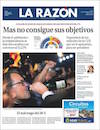
The first interpretation of what happened yesterday in the Principality [sic] is that the separatist coalition desired by the Generalitat [the Catalan government] lost nine seats when compared to what the two parties which formed it had won in the elections of November 2012.
“The nationalist bet of Artur Mas and Orio Junqueras”, the leader of Esquerra republicana de Catalunya, the Catalan pro-independence leftist party, “*was crushed yesterday at the ballot box,” claims the conservative daily, which also notes that Podemos “has failed in Catalonia”, winning “11 seats and less than 9% of the vote.”
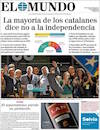
Catalans have shown that they do not want independence, because the total votes for Junts pel Sí and the PUC only total 48%, a score which reveals that Catalan society is split down the middle, making any secessionist initiatives illegitimate.
Was this article useful? If so we are delighted!
It is freely available because we believe that the right to free and independent information is essential for democracy. But this right is not guaranteed forever, and independence comes at a cost. We need your support in order to continue publishing independent, multilingual news for all Europeans.
Discover our subscription offers and their exclusive benefits and become a member of our community now!










